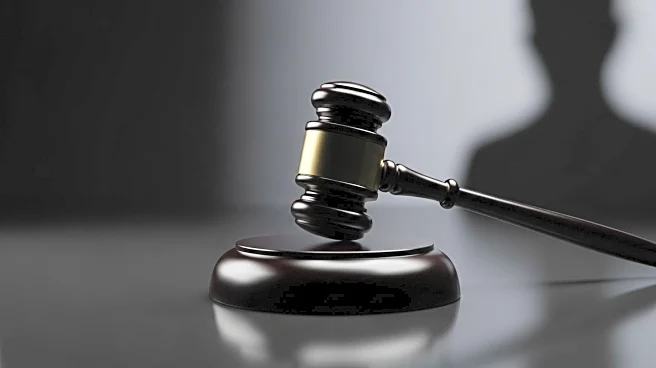What's Happening?
Former FBI Director James Comey has been charged with obstruction of justice and making false statements. The charges come after President Trump publicly urged Attorney General Pam Bondi to prosecute Comey. This development marks a significant legal challenge for Comey, who has been a prominent figure in U.S. law enforcement. The indictment suggests that Comey may have interfered with justice processes and provided misleading information, although specific details of the charges have not been disclosed. The case has attracted considerable attention due to Comey's high-profile role in past investigations, including the probe into Russian interference in the 2016 presidential election.
Why It's Important?
The charges against James Comey could have far-reaching implications for U.S. politics and the justice system. As a former FBI Director, Comey played a crucial role in several high-stakes investigations, and his prosecution could influence public perception of the FBI and its independence. The case also highlights the ongoing tensions between President Trump and former officials involved in investigations related to his administration. If convicted, Comey could face significant legal penalties, which may impact his reputation and future career prospects. The situation underscores the contentious nature of political and legal battles in the U.S., particularly those involving high-ranking officials.
What's Next?
The legal proceedings against James Comey are expected to unfold in the coming months, with potential court appearances and legal arguments. Observers will be watching closely to see how the case develops and whether it leads to further revelations about Comey's actions during his tenure as FBI Director. The outcome of the trial could have implications for other investigations and prosecutions related to the Trump administration. Additionally, the case may prompt discussions about the role of political influence in legal proceedings and the independence of the justice system.











